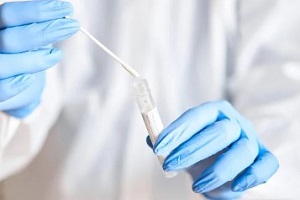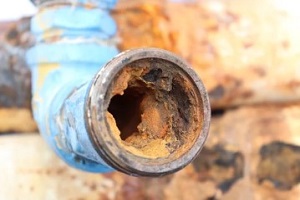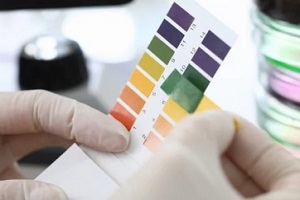 Many commercial buildings use closed loop systems as part of their HVAC operation. In the winter, it is important to protect these systems from exposure to the cold. To prevent freezing, glycol is normally added to these loops to maintain operation.
Many commercial buildings use closed loop systems as part of their HVAC operation. In the winter, it is important to protect these systems from exposure to the cold. To prevent freezing, glycol is normally added to these loops to maintain operation.
However, simply adding glycol to the system once won’t provide permanent protection, and the system should be regularly tested by a lab to ensure that chemical levels are within their expected boundaries.
Failure to conduct frequent glycol lab testing could leave you in the dark as to whether or not your system is protected. Here’s what you need to know.
What Is Glycol Lab Testing?
Glycol lab testing is the process of measuring how much glycol is in a system and evaluating other indicators that it is—or is not—working as intended. Sometimes, businesses do not realize that there is a problem until their glycol turns black or the system begins to fail.
Other times, the system might seem to be functioning just fine but in reality, it may not be doing its job as expected. To avoid this, you should sample your glycol and send it to a lab for analysis. The results will tell you if there are dissolved metals present, if there is enough corrosion inhibitor, whether there are organics in your fluid, how concentrated your solution is, and what the pH is.
Why Do You Need Glycol Lab Testing?
As it turns out, improper glycol levels—or glycol that has started to break down—can cause harm to your system and lead to costly repairs in the future. Glycol lab testing is an important part of your regular maintenance routine so that you can catch issues before they lead to any damage. It is important to review your lab results and report them to your building’s engineering team if the following parameters are not within range. What is the lab testing for?
Metallic Content
One of the most important roles of glycol lab testing is to identify how much metal is contained in the sample. Excess metal levels can indicate that the interior of your pipes are beginning to corrode. This will also tell you whether or not your corrosion inhibitor is working properly.
Corrosion Protection
 It is important to ensure that your levels of corrosion protecting chemicals are in range in your system. If your metallic levels are high it could mean that your system may not be maintaining enough corrosion inhibitors.
It is important to ensure that your levels of corrosion protecting chemicals are in range in your system. If your metallic levels are high it could mean that your system may not be maintaining enough corrosion inhibitors.
Adding glycol can further change the chemistry in your fluid and if your lab test reports that inhibitor levels are down you must take action to protect your system.
Verify Freezing & Bursting Point
The primary reason for using glycol is to prevent the system from freezing. If your glycol is not mixed in the proper ratios or has started to break down, your pipes could freeze if exposed to the cold air.
Lab testing will determine the freezing point of the fluid in your system based on the percentage of glycol in your mixture. If the percentage is lower than you anticipated, it may be time to rebalance your glycol levels. Rule of thumb is usually to have a mixture that is 40% glycol so you have the proper freeze protection.
Buffering Agents & Organics
Once old glycol starts to break down into organic acids, this material can quickly become food for other living organisms. A lab test will reveal the potential for algae growth and biofilms before they foul your equipment. The ratio of buffering agents present during testing will indicate how well your glycol system is shielded against breakdown and that it is diluted properly so that organic material does not form.
Acid Content (pH level)
 Over time, glycol will begin to break down into glycolic acid and other organic acids as it reaches the end of its life expectancy. This increases the acidic pH of your system, which can contribute to pipe degradation and corrosion.
Over time, glycol will begin to break down into glycolic acid and other organic acids as it reaches the end of its life expectancy. This increases the acidic pH of your system, which can contribute to pipe degradation and corrosion.
Glycol lab testing will reveal how much life expectancy your glycol still has and whether it’s time to make changes.
Trust The Professionals For Your Glycol Testing Needs
Glycol can last for a long time in a system, but it is not a set-it-and-forget-it form of maintenance. Glycol testing is best done by a lab that can share a highly detailed analysis of your sample. Without this knowledge, you might not realize that there is a problem until your pipes burst or spring a leak.
The professionals at Tower Water can help to properly manage glycol in your system and get your ratios tested with a reputable lab. We will work with you to balance your system’s glycol and make any changes necessary to keep your system running properly. Call us at (212) 518-6475 to learn more or to schedule an appointment.
